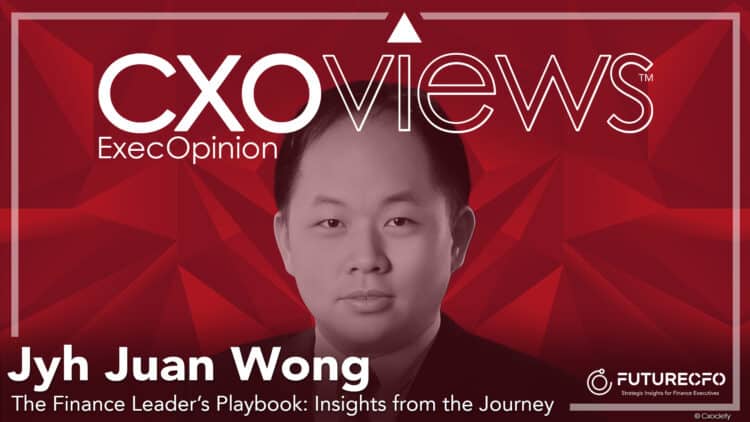Finance leadership is undoubtedly not a cakewalk, as it involves various roles for the organisation to grow and drive value.
Chief finance officers now work as strategic advisors to the C-suite team, with specific strategies at hand to bring in innovation for the company as a whole.
Every decision is crucial to the overall results and endpoint of each and every plan and initiative, that is why it is necessary that finance leaders have a clear view of the road they have to take.
Wong Jyh Juan, chief financial officer at Malaysia-based real estate developer Perdana ParkCity Sdn. Bhd., says the journey to becoming a finance leader often varies, but there are key pathways that stand out.
Pathways and ladders
“Growing with your organisation can be immensely rewarding,” says Wong. “It’s about demonstrating that you’re more than just your job description—contributing beyond your immediate role, perhaps by taking on cross-functional projects or spearheading some impactful initiatives.”
On the way to becoming a successful finance leader for an organisation, Wong explains that it is equally important to build strong relationships with senior management and mentors who can advocate for your growth.
“Consistency and visibility are critical to making this route work.”
He notes that switching jobs is not just about chasing a bigger paycheck, rather, it is about taking purposeful steps that align with one’s long-term career goals.
“Look for organisations with cultures that resonate with your values and roles that challenge you or expand your leadership skills,” Wong advises. “Often, a well-thought-out move can position you for opportunities that may not exist in your current role.”
Wong adds that building a niche or expertise is essential when taking on the finance leadership. “Developing specialised expertise—whether in fundraising, M&A, technological transformation, or another key area—can set you apart as a leader.”
He explains that becoming the ‘go-to’ expert in one’s field naturally opens leadership opportunities. “Thought leadership also plays a big role here, whether through earning advanced degrees like an MBA, obtaining professional certifications, or sharing your insights at industry events and in publications.”
He notes that the goal is to stay ahead of the curve and contribute meaningful, lasting value in one’s field.
“I must say that these pathways aren’t ‘mutually exclusive’. Many successful finance leaders around us are able to combine elements from all three to carve their unique paths to the top.”
Beyond technical expertise
In terms of taking on essential skills beyond just technical expertise, Wong says becoming a standout finance leader definitely takes more than just mastering the numbers.
“It’s about developing a broader set of skills that create impact on a larger scale.”
Wong enumerates three critical skills that go beyond technical expertise: leadership and mentorship, strategic mindset, and networking and collaboration.
“A successful finance leader isn’t just about managing finances—it’s about leading people,” Wong says. “Leadership involves setting a clear vision, building trust, and inspiring teams to work toward shared goals.”
He highlights that what’s equally important is mentorship. “I believe impactful leaders empower others to grow, creating strong, capable teams.”
Wong says the ability to connect financial insights to the broader business landscape is crucial. “A great finance leader sees the bigger picture, understanding how financial data aligns with organisational goals and drives growth. This requires expertise beyond finance, including knowledge of the global economy, market trends, laws and regulations, business strategy, and emerging technologies.”
Wong adds that it is about anticipating change and making informed, forward-thinking decisions.
“In today’s interconnected world, ‘soft skills’ and the ability to build strong relationships are more important than ever. Cultivating meaningful connections—within teams, across departments, and with external stakeholders—drives significant value for the organisation.”
For Wong, modern finance leaders must excel at collaboration, navigating complexities, and uniting diverse perspectives to steer their organisations through an ever-evolving environment.
Navigating career transitions
Wong concedes that navigating career transitions is never easy, but highlights key principles that have guided him along the way.
“I firmly believe in the power of self-improvement,” says Wong. “From earning my accounting degree to professional qualifications, pursuing an MBA (Master of Business Administration), and now working toward a DBA (Doctor of Business Administration), I’ve committed to continuous growth and applying knowledge in ways that create real impact in my work.”
However, Wong says this mindset is not just for him, as it is something he actively encourages in his team and mentees.
He adds that being a change maker Is an imperative in transitioning to new careers. “Change often starts with small, intentional steps. Early on, I focused on improving finance processes—streamlining workflows, refining how we present information, and building stronger stakeholder relationships.”
“What initially seemed like small improvements eventually evolved into transformative initiatives across organisation.”
Wong says he encourages his team not to ‘play it safe’ by holding back or doing less but to step forward, take ownership, and embrace calculated risks.
“Growth and innovation happen when we push beyond our comfort zones. Mistakes are unavoidable, but when we learn from them and ensure they’re not repeated, they become invaluable stepping stones that drive meaningful progress.”
Wong admits that he has always enjoyed pushing boundaries and setting new benchmarks for himself and his team.
“One of my proudest achievements was leading the establishment of the first investment-grade-rated RM1.5 billion i-MTN Programme, with multiple issuances, for a China-based corporation. This multi-award-winning initiative was a career-defining moment that reinforced my belief in challenging the status quo and ultimately paved the way for my promotion to CFO.”
Strategy for success
When asked what he thinks is the most important strategy for success in the C-suite, Wong says it is all rooted in one core principle: value creation.
“This goes beyond financial profitability—it’s about driving value across every facet of the organisation. Success in the C-suite requires shifting from executing tasks to shaping a clear vision, empowering teams, and ensuring sustainable, long-term impact.”

He says that one approach that has consistently worked for him is prioritising clarity and alignment. “Decisions in the C-suite carry significant weight, with ripple effects across the organisation. Ensuring everyone is aligned on the most critical goals and priorities is essential.”
Through structured communication and collaborative problem-solving, Wong says he focuses on fostering clarity at every level, eliminating confusion, and driving unified efforts.
“Another vital strategy has been leading with authenticity and empathy. At the heart of any business are its people, and building genuine connections—whether with employees, peers, stakeholders, or partners—can make all the difference.”
“This is especially true in the real estate industry I’m currently part of. For me, this means listening actively, valuing diverse perspectives, and creating an environment where everyone feels empowered to contribute their best.”
Lastly, Wong notes that he found that staying future-focused is critical.
“The role of the C-suite, including CFOs, isn’t just about addressing today’s challenges—it’s about anticipating what’s next. This involves staying attuned to industry trends, fostering innovation, and being prepared to adapt or pivot when necessary.”
Ultimately, Wong believes success in the C-suite is about building more than just a profitable business; it’s about creating an organisation that’s sustainable, impactful, and meaningful legacy for all its stakeholders.
Onwards to 2025
Onwards to 2025, Wong sees that the broader macroeconomic and geopolitical landscape will present finance leaders with fascinating opportunities and significant challenges.
“The ongoing geopolitical tensions, economic uncertainties, and market volatility call for a sharper focus on risk management and strategic decision-making. While the overall environment appears more stabilised and back to pre-pandemic levels, there is a significant likelihood of volatility ahead.”
Because of this, finance leaders will need to guide their organisations through these turbulent times, ensuring resilience and adaptability.
“Equally significant are the few aspects such as the ESG priorities, which will continue to gain momentum, driven by increasing stakeholder expectations and evolving regulatory requirements.”
He says the accelerating pace of digital transformation, particularly advancements in AI, will fundamentally redefine how finance leaders operate.
“Also, the rising prominence of digital currencies and Blockchains will require finance leaders to reassess business models, financial systems, and transaction processes in a rapidly changing environment.”
Wong believes these interesting and challenging dynamics will demand that finance leaders evolve as strategic enablers, adept at managing present complexities while positioning their organisations for sustained success in 2025 and beyond.
Advice
For younger, aspiring finance professionals, Wong advises:
- Always look beyond the numbers. As finance professionals, accuracy is non-negotiable. But numbers alone are meaningless without real-world context. The real value lies in understanding the bigger picture—how the organisation operates within its industry and the global economy. Finance isn’t just about reporting; it’s about driving strategy, fostering innovation, and building collaboration to create meaningful value that extends far beyond the P&L or balance sheet.
- Maintain a learning mindset. The pace of change is faster than ever, and staying relevant requires a commitment to continuous growth—not just for one's self but also for their team and their organisation. Growth happens when we step out of the comfort zones, invest in learning, and empower others to do the same. Adaptability and an openness to what’s next are key. One must always ask themselves: Am I ready for the challenges and opportunities ahead?
- Focus on building sustainable growth. Leadership is about creating long-term value over chasing short-term gains. It’s not a dilemma if one keeps their conscience clear—true success comes from decisions that stand the test of time. Always consider how today’s choices will shape the future for your career, your team, and your organisation. Staying grounded, reflective, and purpose-driven will allow you to lead with both integrity and resilience.




